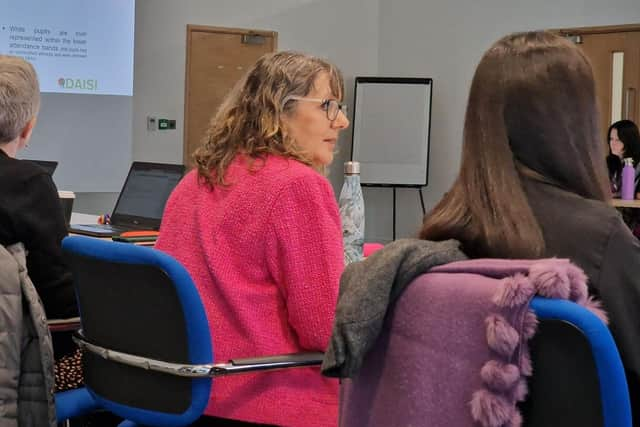Nottingham Council taskforce expanded to tackle low school attendance areas like Bulwell
and live on Freeview channel 276
In 2022 Nottingham was designated one of 24 ‘Priority Education Investment Areas’ by the Government’s Department for Education (DfE).
These areas are also among 55 ‘Education Investment Areas’ (EIAs) announced by the DfE in the Levelling Up White Paper the same year, due to them having particularly low attainment and high rates of disadvantage.
Advertisement
Hide AdAdvertisement
Hide AdA Local Partnership Board, featuring Nottingham Council, experts and academy trusts in the city, has now been set up to help improve poor literacy and low attendance rates in the city.


During a children and young people scrutiny committee meeting on November 30, councillors were told attendance ‘has to be the biggest priority’ because Nottingham has some of the highest absence rates in the country.
Up to £1.6m, from the DfE, will be invested to improve attendance and persistent absence at primary and secondary schools.
The Nottingham wards with the lowest attendance include Aspley, Bestwood, Bulwell and Clifton East.
Advertisement
Hide AdAdvertisement
Hide AdIn total 551 pupils from schools in these wards, who have attendance records between 40 and 70 per cent, will be worked with at first.
Of these children 114 are of primary age, 407 are secondary school children, 302 are boys and 226 have Special Educational Needs and Disabilities (SEND).
Liz Anderson, former Djanogly Learning Trust chief officer, said: “We know attendance is a problem.
“If it makes anyone feel any better it is not just Nottingham, in fact it is not just the UK, but actually all the developed world, having huge problems with getting children back into school post-Covid.
Advertisement
Hide AdAdvertisement
Hide Ad“Nottingham is not massively different from national in terms of overall absence, but our persistent absentees is worse than national.
“Sadly, there is no magic bullet for attendance.
“In Nottingham, the local authority, did two pilots last year, one with Djanogly City Academy and the other with Heathfield Primary School.
“I can absolutely tell you we put 1.5 per cent on attendance at Djanogly and 1.5 per cent does not sound a lot in some ways, but in attendance it is huge.
“So we knew we had got something there we wanted to share, but very much a part of the project is building this best practice tool kit.”
Advertisement
Hide AdAdvertisement
Hide AdWork has also included the creation of an ‘attendance taskforce’, to support children in alternative provision and those who may fall victim to crime, and the employment of an education welfare specialist and an attendance data analyst.
The taskforce is to be doubled in size.
A further £900,000 will also be spent across both Nottingham and Derby to deliver a literacy programme to support improvements in reading and writing.
It comes as Nottingham currently ranks 117th out of 152 councils nationally for writing at Key Stage Two (KS2), or children aged 11.
It is currently 141st out of 152 councils nationally for reading at KS2.
Carl Pattison, English hub strategic lead and independent literacy advisor, said there would be a ‘really exciting project’ of targeted support to boost the literacy skills of children in Nottingham.